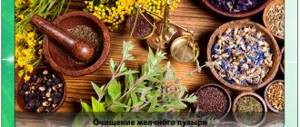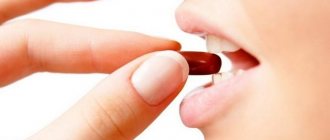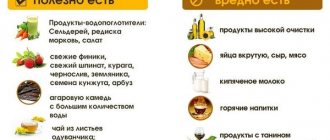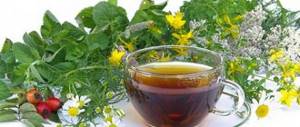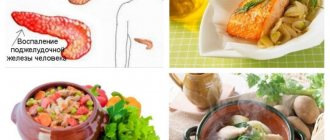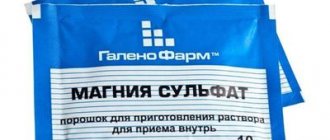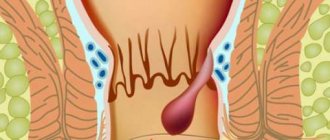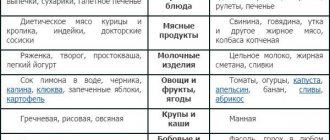Colitis is an inflammatory process that is localized on the mucous membrane of the large intestine.
This disease is more common in the practice of infectious diseases in combination with gastritis and enteritis (inflammation of the stomach and small intestine). In therapeutic and surgical settings, colitis occurs as an independent disease. Colitis often occurs in children due to insufficient formation of the protective barrier of the colon mucosa. However, in adults the incidence is much higher. The highest numbers are recorded in the age group 40-60 years.
According to statistics, every second patient with gastrointestinal diseases suffers from colitis. Considering that the number of genetically modified products is growing every year, the incidence of colitis is increasing. Also, an increase in cases of colitis is associated with frequent and uncontrolled use of antibiotics in people, which leads to the development of dysbiosis in the rectum. In people who do not maintain personal hygiene, the risk of colitis increases, since the disease can develop when an infection enters the rectum from the environment.
What it is?
Colitis is a disease in which inflammation of the mucous membrane of the colon occurs.
Inflammation can occur in both acute and chronic forms. It is provoked by both chronic intestinal inflammation and infections caused by viruses and bacteria. Symptoms of colitis are sometimes complicated by inflammation of the stomach or small intestines. This disease is in some cases mistaken for irritable bowel syndrome due to the similarity of symptoms.
But with the development of irritable bowel syndrome, there is no connection with the colon.
Types and symptoms
Colitis is usually divided into two main forms - acute and chronic.
The period of exacerbation of the disease is characterized by a rapid course and a pronounced clinical picture. This form usually lasts up to 3 months. If the disease lasts beyond this period, then it is usually classified as chronic. This form differs from the acute form in its more sluggish nature and less acute severity of symptoms, but they also create inconvenience for the patient, seriously worsening his quality of life. The following symptoms are characteristic of colitis, including segmental, ulcerative and fibrinous:
- chaotically occurring pain in the abdominal area, looking like contractions;
- foul-smelling stool;
- the presence of particles of blood and mucus in the stool;
- alternating constipation and diarrhea;
- constant constipation;
- profuse diarrhea;
- rumbling along the large intestine;
- flatulence;
- frequent urge to defecate.
During the period of exacerbation, patients often complain of increased body temperature, and in the chronic form, there is additionally a significant decrease in body weight, ability to work, vitamin deficiencies that cause brittle nails and hair, and a decrease in skin elasticity.
Classification
There are a large number of varieties of this disease, which represent different forms of its course.
Like any other ailment, intestinal colitis occurs:
- acute - with this course, the symptoms of the disease are clearly expressed. The disease develops very quickly, which leads to a significant deterioration in the person’s condition. However, it is worth noting that the acute form responds well to conservative therapy;
- chronic – characterized by alternating periods of relapse and remission of characteristic symptoms. The disease progresses rather slowly, and its signs are often blurred, making it quite difficult to differentiate the disease without instrumental diagnostics. Another specific sign is that the treatment of this form is as protracted as its course.
Depending on the prevalence of the pathological process, such pathology is divided into:
- diffuse intestinal colitis - inflammation affects two parts of this organ at once. Against this background, there is an intense expression of symptoms that cannot be ignored;
- segmental colitis - only one part of the intestine is involved in the pathogenic process.
One of the main classifications of the disease is its division according to the etiological factor:
- mechanical colitis - caused by irritation of the mucous membrane of a mechanical nature;
- allergic colitis - occurs against the background of intolerance to a particular product;
- toxic. In turn, it is divided into endogenous, caused by poisoning with toxins produced by the body during any disease, and exogenous, characterized by intoxication with chemicals;
- medicinal – formed due to non-compliance with the course of treatment with drugs. This group also includes membranous colitis, which develops against the background of an overdose of antibiotics;
- infectious colitis – caused by intestinal infections;
- nutritional – arising due to improper diet;
- congenital;
- atonic colitis – develops against the background of aging processes in the body and is typical only for older people;
- diphtheritic colitis - caused by a disease such as dysentery, less often the source of this form is arsenic poisoning;
- political science - the reasons for the formation of inflammation in the intestine are not clear.
Often, several predisposing factors lead to the development of the disease - in such cases they speak of combined colitis.
Depending on the changes that occur in the mucous membrane during the course of such a disease, intestinal colitis occurs:
- ulcerative - in addition to inflammation, ulceration and swelling of the mucous layer of this organ is observed;
- spastic – characterized by decreased peristalsis;
- catarrhal – represents the initial form of the inflammatory process;
- atrophic - based on the name, leads to atrophy of the entire organ or part of it, for example, left-sided colitis;
- erosive - erosion occurs on the shell, but the changes are minor;
- hemorrhagic – the presence of foci of hemorrhage is observed.
In addition, there is a group of nonspecific colitis, which include:
- nonspecific ulcerative colitis;
- granulomatous colitis;
- ischemic colitis.
Why does colitis develop?
Colitis itself is not a systemic disease, but the body’s reaction to unfavorable changes in habits or lifestyle. The causes of colitis can be various disorders:
- Infection in the large intestine. Usually, carriers of infection reach the intestinal tract with unwashed food. In rare cases, harmful microorganisms can enter the intestines through the rectal opening - for example, with an enema, or through a deep wound.
- Abuse of laxatives. Colitis often develops in people who use laxative pills or teas for weight loss. Atrophy of the large intestine, which develops from excessive use of such drugs, is the first step to colitis.
- Development of abdominal ischemic disease of the large intestine. The strongest risk factor is smoking. In heavy smokers, intestinal ischemia is accompanied by severe pain and diarrhea, and sudden weight loss.
- Digestive disorders. The normal digestive cycle is disrupted due to the use of potent medications, poisoning with poor-quality food, poisoning with toxic substances (for example, heavy metals, etc.)
- Chronic eating disorders: anorexia, bulimia, etc. Malnutrition, overeating, and provocation of vomiting are equally dangerous, since any deviations from the norm cause the tissues of the large intestine to work in an unusual rhythm. The intestinal mucous membranes degrade due to overload or downtime.
- Allergy to food. Colitis can be caused by eating a dish containing an allergen. The first signs of allergic colitis are sharp abdominal pain and blood in the stool. If you suspect that you have consumed an unwanted product, it is better to immediately induce vomiting. If most of the food does not have time to enter the intestines, you will protect yourself from colitis.
- Infection with helminths. Worms usually reach the stomach with unwashed fruits or vegetables, poultry, fish or meat that has not undergone sufficient heat treatment. Infection with worms that enter the product through flies or other insects due to improper storage occurs less frequently. Heat treatment kills all helminths.
- Intestinal dysbiosis. It occurs against the background of taking aggressive medications, severe stress, and psychological overload. Often leads to obesity and requires separate treatment.
- Unfavorable heredity. If you have a family history of colon problems, get a full medical checkup at least once a year. This will help prevent colitis.
Causes
The exact cause of the development of intestinal colitis has not been fully established, but doctors identify a number of factors that contribute to inflammation of the mucous membrane of the large intestine:
- Side effect from taking medications - some drugs, especially antibiotics, laxatives, non-steroidal anti-inflammatory drugs, if used incorrectly or with increased individual sensitivity to the composition, cause increased intestinal motility, persistent diarrhea or irritable bowel syndrome, against which colitis develops.
- Food poisoning - when eating poor quality, not fresh or initially infected foods, the bacteria contained in them begin to actively multiply in the large intestine, releasing a large amount of toxins. Toxic substances irritate the walls of the large intestine, provoking the development of the inflammatory process and the appearance of characteristic symptoms.
- Inadequate, unbalanced nutrition - when a person abuses fried, fatty, smoked, spicy, or irregular, monotonous diets, the functioning of the digestive tract as a whole is disrupted, which leads to the gradual development of constipation, dysbiosis and colitis.
- Chronic diseases of the gastrointestinal tract - inflammatory processes of the stomach, gallbladder, duodenum, pancreas lead to disruption of the digestion of food, the development of diarrhea, imbalance of beneficial and pathogenic bacteria in the intestine and, as a result, inflammation of the mucous membrane of the large intestine.
- Toxic poisonings are exogenous and endogenous in nature. With exogenous poisoning of the body and damage to the large intestine occurs under the influence of arsenic, mercury salts, with endogenous poisoning - with urate salts against the background of gout progression.
- Mechanical factor - colitis often develops in people who abuse enemas and rectal suppositories.
Causes and symptoms of colitis in children
In most cases, colitis in children develops due to bacterial dysentery. In addition, the disease is provoked by other viruses and microorganisms, infestations of worms and protozoa. Alimentary colitis occurs when there are disturbances in diet, deficiency of vitamins, proteins, and prolonged consumption of rough and spicy foods. The disease develops due to allergies, malfunctions of the digestive system, nervous system, and cardiovascular system. Frequent use of antibiotics, various medications, addiction, developmental abnormalities, and intestinal dysfunction can cause colitis.
Acute colitis is accompanied by fever, vomiting, weakness in the child, and pain. Stools become more frequent, stool becomes foamy, watery, with a green tint, streaked with blood, and mucus. The chronic type of the disease alternates between periods of remission and exacerbation. In an infant or older child, chronic colitis is characterized by bowel dysfunction and pain.
Symptoms of colitis
Intestinal colitis in adults has a lot of symptoms that are very characteristic:
- Discomfort and pain in the lower abdomen. This kind of manifestation accompanies intestinal colitis in 90% of cases. Exacerbation of pain is observed after therapeutic procedures, eating, and exposure to mechanical factors (shaking in transport, running, walking, etc.).
- Constipation or diarrhea, sometimes alternating between them;
- Many patients also experience flatulence, heaviness in the abdomen, and bloating.
- Tenesmus is a false urge to defecate, accompanied by pain. In this case, there may be no stool.
- Detection of fluid, mucus, streaks of blood, and in severe cases, pus in the stool.
- Weakness of the body associated with impaired absorption of various substances or the activity of pathogenic microorganisms.
Symptoms of the disease intensify during exacerbations and practically disappear during remission.
Painful sensations with colitis of the colon are aching or dull. From time to time, patients complain of bursting pain. In some patients, the pain may be dull, constant and “spread” throughout the abdomen. Then it intensifies, becomes cramping and is localized in the lower abdominal cavity: on the left or above the pubis. The attack may be accompanied by the urge to defecate or the passage of gas.
Inflammation of the colon mucosa can affect both individual parts of the large intestine and spread to all its parts. The degree of damage can vary from mild inflammation, which causes minor painful cramps and gurgling in the abdomen, to pronounced ulcerative changes. Colitis can be complicated by inflammation of the small intestines or stomach.
Signs of acute colitis
In acute cases of the disease in adults, the following symptoms are observed:
- excessive pain in the lower abdomen, sometimes the pain can be located in the epigastric area;
- flatulence and active gas formation may be observed;
- at the time of bowel cleansing, the patient may experience significant discomfort, and the urge to go to the toilet itself can be very painful;
- traces of blood can be seen in the stool;
- the patient often has diarrhea;
- the patient’s general condition is characterized by increased fatigue, body weight may begin to decrease;
- in some cases, there is a lack of appetite, and nausea appears after eating.
Symptoms of chronic colitis
Manifestations of the chronic form of the disease include:
- flatulence;
- spastic constipation;
- false urge to defecate, accompanied by flatulence;
- mild pain during physical activity, usually caused by ischemic colitis;
- aching, dull, cramping pain that covers the entire lower abdomen, radiating in some cases to the left hypochondrium;
- headache and nausea.
Call your doctor if you have diarrhea with blood or mucus, or if you have severe abdominal pain, especially when accompanied by a high fever.
Symptoms of intestinal colitis in women
During clinical observations, it was concluded that women develop colitis more often than children or men.
Very often, the cause of colitis in women is the use of cleansing enemas to remove toxins and reduce weight. In addition, most weight loss products, which are so popular among women, negatively affect the functioning of the intestines and their condition and can even cause colitis.
Women may experience the following symptoms of colitis:
- violation of the general condition (weakness, loss of appetite, decreased performance, etc.);
- abdominal pain;
- heaviness in the stomach;
- bloating;
- diarrhea;
- tenesmus;
- temperature rise and others.
The severity of the above symptoms depends on the cause, course and location of colitis.
Symptoms of intestinal colitis in men
Males are less susceptible to colitis than females. Middle-aged men are more likely to suffer from inflammation of the large intestine.
The disease in the stronger sex manifests itself with the same symptoms as in women, namely:
- increased gas formation in the intestines;
- abdominal pain of various types;
- nausea;
- sometimes vomiting;
- stool instability;
- the appearance of blood, pus or mucus in the stool;
- painful false urge to empty the bowel and others.
The intensity of clinical manifestations of colitis directly depends on the etiology, course, type of colitis, as well as on the individual characteristics of the patient.
Symptoms of Ulcerative Colitis
Any disease in each clinical case proceeds differently, all signs are very individual and depend on the degree of intestinal damage, the person’s age, and concomitant diseases. With ulcerative colitis of the intestine, symptoms can also be either pronounced or mild.
In some patients, colitis does not manifest itself for a long time, only sometimes an exacerbation can manifest itself as hidden blood or obvious blood in the stool, while a person may associate such a symptom as a manifestation of hemorrhoids and delays visiting a doctor and conducting a thorough examination.
In other situations with ulcerative colitis, the patient is urgently hospitalized with symptoms of fecal incontinence, bloody diarrhea, fever, general weakness, pain and tachycardia:
- Fecal incontinence, especially frequent nighttime urge to defecate, mild diarrhea in 60% of patients, up to 20 times a day
- Mucus, pus, blood in the stool. Blood can range from minor amounts found only on toilet paper to bloody stool
- 20% have constipation, which indicates inflammation of the sigmoid or rectum
- False urges to defecate are also typical, with only the release of mucus, pus, and blood often occurring.
- Abdominal bloating, signs of general intoxication, if the inflammation is severe or the affected area is large, then tachycardia, dehydration, high temperature, vomiting, and loss of appetite occur.
- Every 10 patient may develop symptoms not related to the gastrointestinal tract - blood clots, visual disturbances, joint lesions, skin reactions in the form of a rash or on the mucous membranes, disorders of the liver and gallbladder. These manifestations may precede manifestations of intestinal colitis, or may not be associated with intestinal damage.
Colitis. Treatment of colitis with folk remedies at home
In this article we will look at treating colitis with folk remedies at home.
General information
Colitis is an inflammation of the mucous membrane of the colon, and can be acute or chronic.
- Acute colitis is most often associated with microbial infection in infectious diseases such as dysentery, salmonellosis, and in some cases it can be caused by other microorganisms, viruses, toxic substances, allergic components, etc.
- Chronic colitis - occurs more often than other types of intestinal inflammation, is mainly a consequence of acute infections or diseases such as gastritis, pancreatitis, enteritis, etc. It can occur due to prolonged and severe nutritional disorders, as well as prolonged uncontrolled use of laxatives (drugs rhubarb root, buckthorn, joster fruit, senna leaf, etc.), antibiotics and other drugs.
Symptoms of colitis
Acute colitis is characterized by acute nagging pain, rumbling in the abdomen, loss of appetite, diarrhea (stools up to 15 - 20 times a day), the temperature can rise to 38 ° C and higher. If left untreated, the tongue becomes dry and coated with a gray or dirty gray coating.
Chronic colitis manifests itself:
- dull aching pain in the lateral and lower abdomen, intensifying after eating and before defecation;
- diarrhea, sometimes alternating with constipation;
- a feeling of incomplete bowel movement after defecation;
- bloating and rumbling in the abdomen due to increased gas formation;
- fetid, putrid odor of feces;
- loss of appetite, nausea, belching, feeling of bitterness in the mouth;
- weakness, weight loss, vitamin deficiency, anemia and other symptoms.
When to see a doctor?
If you have symptoms of intestinal discomfort (unstable stools, flatulence, etc.), you should be examined by a doctor.
Colitis examination
In acute colitis, the examination is aimed at identifying dysentery and other acute intestinal infections. In case of chronic colitis, intestinal tumor diseases should first be excluded.
In addition to a general medical examination and prescribing routine tests to clarify the diagnosis and exclude the most common diseases accompanied by symptoms similar to colitis, the doctor may prescribe:
- endoscopic examination of the intestines (colonoscopy, sigmoidoscopy);
- ultrasound examination of the abdominal organs;
- microscopic (coprogram) and bacteriological examination of feces;
- according to indications, additional methods of studying intestinal microflora, etc. are used.
Treatment of colitis
Treatment is usually carried out at home.
Doctors usually recommend following a diet and taking various medications: antidiarrheals, normalizing intestinal microflora, reducing flatulence, laxatives.
The choice of these remedies is strictly individual and depends on the nature of the inflammatory process in the colon, the state of the intestinal microflora, age, concomitant chronic diseases, and the general condition of the body.
Diet for colitis
For severe acute colitis, on the first day it is recommended to drink only plenty of fluids (7 - 8 glasses of hot, strong and not very sweet tea), on the second day - 7 - 8 glasses of warm rice water during the day, infusions of rose hips, quince, bird cherry, jelly blueberries, red wine (Cahors), strong tea (all without crackers). If acute colitis leads to dehydration due to uncontrollable diarrhea, the patient is given special solutions, as for acute intestinal infections. Then, for 1-2 days, 5-6 meals a day are prescribed with liquid, semi-liquid, pureed and cooked in water or steamed dishes, which recommends:
- crackers from premium wheat bread;
- soups in low-fat weak meat or fish broth with the addition of mucous decoctions of cereals and pureed meat, steamed quenelles and meatballs, egg flakes;
- steamed or boiled cutlets, dumplings, souffles, meatballs from lean and lean varieties of beef, veal, chicken and turkey (without skin), rabbit, fish;
- freshly prepared calcined or unleavened mashed cottage cheese and a steam soufflé made from it, 1 - 2 eggs per day, soft-boiled or in the form of a steam omelet and in dishes;
- pureed porridge in water or low-fat broth made from rice, oatmeal or buckwheat or cereal flour;
- tea, especially green tea, decoctions, jelly and jelly from rose hips, dried blueberries, black currants, bird cherry, quince, dogwood, pears, pureed raw apples without peel.
Excluded:
- fresh wheat and any rye bread, pastries;
- soups with cereals, vegetables, pasta, dairy, strong and fatty broths;
- fatty meat, pieces of meat, sausages and other meat products;
- fatty and salted fish, caviar, canned food;
- whole milk and other dairy products, except cottage cheese;
- hard-boiled and fried eggs;
- millet, pearl barley and barley, pasta, legumes;
- any vegetables and snacks, as well as natural fruits and berries, dried fruits, compotes, honey, jam and other sweets;
- coffee and cocoa with milk, carbonated and cold drinks.
In case of chronic colitis, without exacerbation of the disease, a rational (healthy) diet is recommended with the mandatory use of means to normalize the intestinal flora.
In case of a sharp exacerbation of chronic colitis with the occurrence of severe diarrhea, nutrition can be structured similarly to nutrition in acute colitis, but no more than 2 - 3 days until the acute phenomena are eliminated.
Then they switch to an unprocessed version of the above diet with the gradual inclusion of foods prohibited in the acute period.
In the future, rational nutrition is indicated with the exclusion or limitation of foods and dishes that are poorly tolerated by a particular patient and can cause exacerbation of chronic colitis (such products may include milk, legumes, grapes, beer, kvass, potatoes, sauerkraut, as well as fatty, very salty and spicy foods).
It is advisable to consume 50-100 g of raw apples, carrots or other raw vegetables and fruits 3-4 times a day before the main meal, chewing them thoroughly.
Treatment of colitis with drugs
FOR ORAL USE • DRUGS THAT NORMALIZE INTESTINAL MICROFLORA: Bactisubtil • Bifiform • Hilak forte • Enterol.
• PRODUCTS THAT REDUCE FELLOWS: Meteospasmil • Pankreoflat • Pepfiz • Simethicone (Espumizan, Simikol) • Activated carbon • Dill • Fennel • Unienzyme with MPS.
• LAXATIVES: Bisacodyl (Dulcolax) • Lactulose (Duphalac) • Macrogol (Forlax) • Sea kale (Kelp) • Sodium picosulfate (Guttalax, Laxigal) • Plantain seeds • Senna (Glacsenna).• ANTIDIARHEALS:
Attapulgite (Neointestopan) • Loperamide (Lopedium, Imodium) • Smecta.
Treatment of colitis with folk remedies at home
Let's start by watching the video “How to treat colitis using traditional methods.”
Let's consider the treatment of colitis with folk remedies, the most effective recipes of traditional medicine.
Spastic colitis
- St. John's wort herb - 10 g. Pour 1 glass of water, boil for 5-10 minutes, leave for 2 hours and drink 1 tbsp. l. 3-5 times a day before meals.
- Peppermint leaves - 5 g. Pour 1 glass of boiling water in a thermos, leave for 2 hours and drink 1 tbsp. l. 3-5 times a day before meals.
- Rhizome and roots of elecampane - 10 g. Pour 1 glass of boiling water in a thermos, leave for 2 hours and drink 1 glass 3 times a day before meals. Course of treatment - 30 days.
- Chamomile flowers - 10 g. Pour 1 glass of boiling water in a thermos, leave for 2 hours and drink 1/3 glass 3 times a day before meals.
The course of treatment is 30 days.
Chronic colitis
- A decoction of licorice root (10 g per 200 ml of water, boil for 5-10 minutes and leave for 1 hour) drink 2 tbsp. l. 3 times a day 30 minutes before meals for chronic colitis. The course of treatment is 30 days.
- Calendula officinalis flowers - 10 g.
Pour a glass of boiling water into a thermos, leave for 2 hours and drink 2 tbsp. l. per day before meals for 2-3 months for infectious colitis.Calendula tincture (pharmacy) - 30-40 drops 3 times a day before meals for 2-3 months for infectious colitis.
- Cinnamon rosehip branches - 50 g. Infuse in 80 ml of boiling water in a thermos for 1 hour, take 3/4 cup 3-4 times a day an hour before meals for chronic colitis. The course of treatment is 45 days.
- Common cuff leaves - 1 tbsp. l. Pour 1.5 cups of boiling water into a thermos, leave for 1 hour, take 2 tbsp. l. every 2 hours for chronic colitis. The course of treatment is 25-30 days.
- Wild strawberry roots - 5 g, brittle willow bark - 10 g. Boil over low heat for 10 minutes in 500 ml of water, leave for 1 hour and drink in sips throughout the day for chronic colitis accompanied by diarrhea. The course of treatment is 10-15 days.
- Lingonberry leaf - 2 g, St. John's wort herb - 5 g, flaxseed - 2 g, large plantain leaf - 3 g, horsetail herb - 2 g, horse sorrel herb - 1 g. 4 tbsp. l. collection, pour 1 liter of boiling water, boil for 5-7 minutes, leave for 2 hours, strain and drink 1/2 cup 2 times a day before meals for chronic colitis. The course of treatment is 30 days.
- Infusion of dry watermelon rind powder (1 tbsp per glass of boiling water, leave for 1-2 hours), take 1/2 cup 3 times a day for diarrhea. The course of treatment is 25-30 days.
- The finest powder is made from linden tree coals and taken 3-4 tsp. per day for chronic colitis, manifested by diarrhea, bloating, belching.
- For colitis with diarrhea, drink an infusion of a mixture of stinging nettle leaves and blue blackberries. 1 tsp. nettles and blackberries in 300 ml of boiling water (daily dose), infuse in a thermos for 2 hours and drink throughout the day. The course of treatment is 25-40 days.
- Horse sorrel seeds - 1 tsp. Pour 1 cup of boiling water into a thermos, leave for 1 hour, drink 1 tbsp. l. 3 times a day for 2-3 weeks for diarrhea.
- The fruits of the common cherry have a strengthening effect, improve appetite, and promote the digestion of fats and protein. They are used after meals 2-3 times a day, 100-200 ml.
- Traditional medicine recommends eating the yellow inner skin lining the chicken stomach for diarrhea; it can be dried and stored for future use. Before use, chop half the skin removed from one stomach and pour 1 cup of boiling water, let it brew for 1 hour and take 1/2-1/3 cup 2-3 times a day.
- Dry pears - 1/2 cup, oatmeal - 3 tbsp. l. Boil for 10-12 minutes in 2 glasses of water, leave for 1 hour, strain, take 1/2-1/4 glass 1-2 times a day for diarrhea.
- Fresh potato juice - 10 g. Take before meals 2-3 times a day. This is a simple, affordable, effective remedy against constipation. The course of treatment is 5-7 days.
Traditional and alternative medicine offer a large number of medications and recipes for the treatment of colitis. However, before you begin treating colitis with folk remedies at home, it is advisable to consult a doctor. He will tell you which remedy is suitable specifically for your case.
Source: https://nepoznannoe.su/narodnaya-meditsina/kolit-lechenie-narodnymi-sredstvami.html
Complications
Complications, as a rule, occur if no treatment was carried out, and the disease was left to chance, or was carried out incorrectly. The following complications are possible:
- intoxication;
- dehydration;
- development of anemia, blood loss;
- cancerous formations;
- migraines, dizziness;
- dysbacteriosis;
- intestinal obstruction;
- perforation of the intestinal wall, which can lead to peritonitis.
The listed complications can be easily avoided if you react to unpleasant symptoms in time, consult a doctor and carry out diagnostic measures. After the doctor determines the exact cause of colitis, competent treatment will be prescribed that will give appropriate results. It is very important to adhere to a diet so that the results of treatment therapy are as effective as possible. With the right approach, the prognosis is generally favorable.
Starvation
During the period of exacerbation of the disease, the doctor advises to adhere to a three-day fast. This process will eliminate the irritating effect on the inflamed areas of the intestinal canal. The patient will also be able to avoid various complications such as the formation of erosions and ulcers in the gastric organ.
During fasting, the patient can drink water, tea and dried fruit compotes. If hunger becomes unbearable, then jelly is allowed. It has an enveloping effect and helps protect the walls of the intestinal canal from damage.
Therapeutic fasting must be carried out with your doctor. If symptoms of dehydration are observed, glucose and saline solutions are administered intravenously.
When signs of colitis subside, food can be reintroduced. This should be done gradually, starting with small portions. Food should be mushy. In the first two days, the patient is advised to eat baby food.
Diagnostics
Colitis is detected using laboratory and instrumental studies. Diagnosis of intestinal colitis is made using the following tests:
- General clinical blood test. The study will show an increase in ESR and red blood cell levels, which indicates active inflammation in the body.
- Coprogram - examination of stool. In the biological material of a person with colitis, streaks of blood and a large number of leukocytes will be found.
- Bacteriological research. The test involves inoculating microflora from the patient's stool to detect the causative agent of the disease.
- Polymerase reaction. The study will help identify the presence of helminths or viral particles in the intestinal contents.
- Serological testing for suspected autoimmune origin of the disease. The technique is aimed at detecting antibodies in the patient’s blood against the membranes of special blood cells – neutrophils.
- Determination of fecal protein. The study is carried out to identify Crohn's disease, a concomitant disease of which is ulcerative colitis.
However, most laboratory tests are nonspecific, so they may indicate other diseases with similar symptoms.
To confirm the diagnosis, it is necessary to conduct the following instrumental studies:
- Contrast irrigoscopy. The study involves filling the patient's large intestine with a contrast agent that is clearly visible on x-rays. Based on the resulting image, it will be possible to judge the presence of erosive phenomena, stenoses, and malignant neoplasms, which are complications of colitis.
- Fibroileocolonoscopy. During the study, the patient's intestines are examined using an endoscope, which has a special camera and a device for collecting biological material. During the test, doctors will be able to accurately determine the location of the inflammatory process and see what stage it is at.
- Ultrasound. An ultrasound examination clearly shows pathological processes leading to changes in the intestinal lumen.
- Biopsy. After the examination, doctors obtain a small fragment of the intestinal wall. A biopsy is necessary because the symptoms of colitis are in many ways similar to the manifestations of malignant tumors. Histological examination of the obtained material makes it possible to differentiate these diseases.
How to treat intestinal colitis?
Treatment of colitis depends entirely on determining an accurate diagnosis. Treatment procedures in adults depend on how developed the inflammatory process is and whether there are concomitant diseases of the digestive organs. In any case, it is first necessary to eliminate the cause of the disease, and only after that restore the functions of internal organs and improve health. Treatment depends not only on what caused the colitis, but also on the stage of the disease.
To treat the infection, it is necessary to undergo a course of antibiotic therapy. Only after the patient has been tested to determine the pathogens, medications are prescribed taking into account a possible allergic reaction to certain components of the medications. Antibiotics are usually prescribed to support and restore intestinal microflora.
If it comes to toxic poisoning, it is necessary to treat with drugs that eliminate intestinal dysbiosis. This medicine can extinguish the effects of toxins. It is important to remember that treatment must be carried out comprehensively. In addition to medications to restore the functioning of the gastrointestinal tract, it is necessary to use painkillers, antidiarrheal and anti-inflammatory drugs.
Ulcerative colitis must be treated taking into account the individual characteristics of the patient. If the development of the disease is influenced by a hereditary factor, then symptomatic therapy must be carried out.
About colitis
This is an inflammation of the large intestine of an acute or chronic nature, which appears due to toxic, infectious and ischemic effects.
Colitis requires an integrated approach to treatment
Two concepts are often confused: intestinal colitis and colic. They are completely different.
Colic is a sharp, cramping pain in the lower abdomen, which can be one of the symptoms of many diseases.
Colitis, in turn, exists as a disease with certain characteristic signs.
How does this disease appear in the body? The intestine is represented by thick and thin sections. In the thin one, active processing of food occurs, its decomposition into useful substances, and in the thick one, the processing process is completed and nutrients are absorbed.
The mechanism is disrupted if there is a violation of living conditions for beneficial microorganisms . This discomfort is provoked by spoiled food, toxic substances, medications (many of them damage the mucous membrane), and the genetic characteristics of the body.
When the intestinal walls are damaged by irritants, the bacteria exhibit a peculiar reaction, thus an inflammatory process occurs and colitis develops.
Types and symptoms of colitis
There are three types of inflammation:
- Spicy.
- Chronic.
- Ulcerative.
Manifestations of the disease depend on the age, health status of the patient and other related factors.
Among the signs are the following:
- Frequent diarrhea and constipation (unlike other diseases in that there are blood impurities, green and colorless streaks).
- Frequent urge to defecate (painful, with difficult stool).
- Feeling of heaviness in the stomach.
- Flatulence.
- Feeling pain during physical activity, when eating, and also after medical procedures.
Causes of colitis
There are a number of factors favoring the onset of the disease:
- Food poisoning.
- Congenital abnormalities in the functioning of the intestine.
- Diseases of the gastrointestinal tract.
- Medicines that have side effects on the gastrointestinal tract.
- Poisoning with heavy chemical elements (mercury, phosphorus, salt nitrates).
- Allergic reactions.
- Damage to the mucous membrane due to prolonged use of suppositories and cleansing enemas.
Drug treatment
Drug treatment of intestinal colitis is aimed at eliminating inflammation and general manifestations of infection. In severe cases, pain relief and infusion therapy are also required.
- Antibiotics and antimicrobials. Prescribed if an infectious etiology of the disease is identified. The drugs Enterofuril, Alpha Normix (Rifaximin), Tsifran are prescribed. The course of treatment is short, 3-5 days strictly according to indications and under the supervision of the attending physician.
- Relieving pain syndrome. Pronounced pain syndrome is relieved with antispasmodic drugs, such as No-shpa, Papaverine. In more severe cases, anticholinergic drugs are added to antispasmodics.
- Helminthiasis. If the cause of intestinal colitis is helminthiasis (parasitic intestinal infection), specialized anthelmintic medications are prescribed (specific names depend on the type of helminth and the degree of damage).
- Elimination of stool disorders. Constipation and diarrhea are eliminated in different ways. To stop diarrhea, astringents are recommended (oak bark, bismuth nitrate salt, tanalbin, white clay, etc.), and a cleansing enema is performed to eliminate constipation.
- Normalization of microflora. Normal and stable peristalsis is impossible without beneficial microflora. As a result of diarrhea or constipation, the microflora dies. If cleansing measures have been carried out, the bacteria are washed out, which can result in prolonged constipation. Special probiotic preparations are prescribed, such as Linex, enzymes (if the disease occurs due to their deficiency), enterosorbents (Polysorb, activated carbon, Polyphepan, Enterosgel, Filtrum, etc.).
- Treatment of associated complications. With intestinal colitis, proctitis or proctosigmoiditis often forms. To eliminate these consequences of colitis, specific local therapy is carried out using suppositories (drugs based on belladonna, anesthesin are administered rectally, astringents are administered), as well as enemas (phytotherapeutic with calendula, chamomile, or tannin, protorgol preparations).
However, ulcerative colitis of the intestine is more difficult to treat. More intensive therapy is required, which means longer and more expensive. Drugs for the treatment of this type of pathology are not only expensive, but also have a lot of side effects, so they are used strictly as prescribed by a specialist.
They are produced in the form of rectal suppositories, enemas, and in tablet form (Salofalk, Pentasa, Mezavant, Mesacol). In some cases, they resort to the use of biological therapy drugs, such as the drugs Humir (Adalimumab), Remicade (Infliximab). In the most severe cases, the use of corticosteroid medications (Prednisolone, Methylprednisolone, Hydrocortisone) is permissible. The drugs are available in the form of rectal droppers, suppositories, and tablets. If the cause of the disease is an autoimmune disease or an allergic reaction, immunosuppressants (Cyclosporine, Azathioprine, Methotrexate) are prescribed. Also, for chronic colitis, sanatorium-resort treatment is recommended.
Causes
The main cause of the inflammatory process in the large intestine is bacteria, but there are many more factors that can provoke the development of diseases and:
- infectious agents - dysentery bacillus, lamblia, salmonella, helminths, tuberculosis;
- long-term treatment with antibiotics, frequent use of laxatives, rectal suppositories, constant use of enemas;
- intoxication of the body as a result of food or chemical poisoning;
- systematic violation of diet, stress;
- stagnant processes in the abdominal cavity due to impaired blood circulation;
- allergic reaction, increased release of histamines;
- autoimmune disorders;
- poor diet, lack of foods containing fiber, improper preparation of dishes;
- rough, spicy, fatty foods.
If the disease has become chronic, exacerbation is often caused by the following reasons:
- improper diet;
- dry food;
- food allergies;
- frequent treatment with antibiotics;
- alcohol abuse;
- increased emotional stress.
Acute colitis has vivid symptoms, but if treatment is not carried out, the disease becomes chronic and can last for years. Colitis can also be caused by infectious diseases of other digestive organs that are directly related to the intestines - pancreas, gallbladder, liver.
Diet for colitis
Diet for any gastrointestinal disease is an integral part of treatment. And intestinal colitis is no exception.
The most important rule of therapeutic nutrition is the exclusion of mechanical irritants, that is, coarse fiber, namely, you cannot eat nuts, seeds, raw vegetables, bran, legumes, and also exclude all chemical irritants from the diet - salty, spicy, sour, pickled, smoked foods.
Meals 4-5 times a day, it is allowed to steam everything, boil vegetables, it is advisable to eat pureed food, you should completely avoid milk and cabbage in any form. Monitor your normal daily fluid intake.
Herbs for the treatment of intestinal colitis
Plantain seeds
Psyllium seeds, being a source of soluble fiber, will help improve bowel mobility. Simply add 1-2 teaspoons of psyllium seeds to a cup of warm water. And before the water thickens, drink it. Use this remedy daily and you will see improvement.
Note -
- Drink plenty of water if you are using this remedy.
- Do not use plantain if you have intestinal cramps or obstruction.
Fenugreek
Fenugreek will create a protective layer along the digestive tract.
Boil water (1 cup). Pour in crushed fenugreek seeds (1 teaspoon). Simmer over low heat for 4–5 minutes. Drink this tea daily.
Wheatgrass root
Wheatgrass root decoction will cure rectal bleeding, diarrhea and abdominal pain.
Calendula
Calendula improves digestion and reduces ulcerative colitis.
Make calendula tea by pouring a cup of hot water over the calendula flowers (1-2 teaspoons) and letting it steep for 10-15 minutes. Strain. Drink two or three times a day.
Chamomile
Chamomile is very useful as a digestive tract soothing agent. All you need to do is pour dried chamomile flowers (3 teaspoons) with hot water (1 cup) and leave for 10 minutes. Strain and drink.
Boswellia
Boswellia is an excellent herbal remedy for the treatment of ulcerative colitis. It stops the chemical reactions associated with inflammation and thus treats ulcerative colitis. This herb is available in tablet form.
Licorice
Drink licorice root tea to soothe pain. To prepare tea, pour 15 g of licorice root in 2 glasses of water. Boil for 15 minutes. Strain and drink. Licorice is also available in extract and tablet form.
Common elm
Smooth elm is a folk remedy used to treat diarrhea and inflammatory bowel disease. Take 2 glasses of hot water. Add 1 teaspoon of sugar and 1 teaspoon of smooth elm to it. Consume this paste 2 times a day.
Folk remedies
In the early stages of intestinal inflammation, you can easily do without pharmaceuticals. Traditional medicines will help to cope with the disease in the bud. If you have reasons to be wary of this disease, write down some of your grandmother’s recipes for yourself:
- Honey with water. A simple home remedy that demonstrates high effectiveness in the fight against intestinal colitis. Start systematically drinking honey with water half an hour before meals, and after a few days the inflammation will go away. After a few days, the symptoms of the disease will disappear completely.
- Microclysters. Using a small syringe or a simple medical syringe, inject 55-65 ml of sea buckthorn or rosehip oil through the anus. Make sure that the medicine does not leak out. Lie on your left side and try to sleep until the morning. Overnight, the exacerbation of intestinal colitis will noticeably improve.
- Mumiyo. Place 1 gram of this product in a small metal container (for example, a coffee pot) and add 250 ml of water. Drink 40-45 ml of the resulting solution once a day. To increase the effectiveness of treatment of intestinal colitis, use rectal suppositories with mumiyo. The maximum daily dose of this drug is 0.2 grams. Remember this so as not to harm your intestines.
- Propolis. The antibacterial properties of this remedy are far behind many pharmaceutical drugs against colitis. If you do not know how to treat the intestines, and are not even completely sure that this is necessary, start taking 20% propolis tincture in vodka daily, 80-90 drops per day. Such prevention normalizes the condition of the gastrointestinal tract and does no harm.
- Herbal infusions. St. John's wort decoction will help cure intestinal colitis in a matter of days. Mix 10 grams of dry leaves and 50 ml of vodka, divide the total volume into three equal portions and drink throughout the day. Do the described steps every day, and after 2 weeks the intestinal inflammation will subside.
Diet
How to treat intestinal colitis at home? One of the treatment methods is a therapeutic diet. It is an integral part of the therapeutic course. Typically, a gastroenterologist recommends following diet number four. This type of diet involves the exclusion of foods with a high content of irritating properties.
During the diet, you should follow several recommendations:
- Food should have a temperature between twenty-eight and thirty-five degrees. Eating cold or hot food is not allowed, as it leads to irritation of the intestinal canal.
- The product must be crushed to a puree. Such nutrition will reduce the load on the digestive system.
- Food should be steamed, stewed or baked in the oven. Fried, salted and smoked foods are strictly prohibited for colitis.
- Fruit juices must be diluted with water in a one to one ratio before drinking. The thing is that fruits contain acids that irritate the walls of the intestinal canal.
- Products containing fiber are completely excluded from the diet. This includes fresh fruits, vegetables and berries, bran.
- Food must be prepared without the use of spices and herbs. You can use salt, but only in small quantities.
There is a certain list of foods that can be consumed for colitis.
These include:
- baked apples and pears;
- fruit purees;
- yesterday's black bread, croutons, crackers;
- soups with low-fat vegetable or meat broth;
- marshmallows, marmalade and marshmallows made from natural ingredients;
- kefir, fermented baked milk, yogurt without additives, semi-hard cheese;
- butter and other vegetable oils;
- chicken, turkey and rabbit;
- boiled fish;
- buckwheat, rice and oatmeal porridge.
By following all of the above recommendations, the patient can cure colitis and recover quickly.
Prevention
The set of preventive measures to prevent the occurrence of such a disease includes the following rules:
- complete cessation of bad habits;
- compliance with nutritional recommendations;
- timely treatment of constipation and those ailments that can lead to intestinal colitis;
- limitation from emotional and physical stress;
- taking medications only as prescribed by the attending physician and strictly observing the dosage. This will help avoid the appearance of membranous colitis in the first place;
- compliance with safety rules when working with toxic substances and poisons;
- regular medical examination.
The prognosis of intestinal colitis with early diagnosis and complex therapy is favorable, which assumes complete recovery or the achievement of stable remission.
Forecast
The uncomplicated form of the disease has a good prognosis - in most cases the disease is easily treatable and goes away without a trace. What is important is how intestinal colitis is treated. The use of folk remedies without consulting a doctor can blur the clinical picture and complicate the diagnosis of severe colitis.
The presence of complications (bleeding, sepsis, peritonitis) is a poor prognostic sign. Each of them, without proper treatment, can lead to death, which is why it is so important to start treatment in a timely manner.
Ulcerative colitis of the intestine Spastic colitis Erosive colitis of the intestine Irritable bowel syndrome Intestinal dysbiosis Intestinal cancer
Types of colitis
First aid measures and treatment strategy for colitis depend on the specifics of the disease. At the first appointment, before the examination, the doctor has the right to prescribe only medications to relieve symptoms. A course of treatment is prescribed only after determining the true nature of the disease. Refer to the table to get at least a rough idea of what form of colitis you have encountered.
| Type of colitis | Specific symptoms | Causes | Prevalence |
| Ulcerative | The symptoms are mixed. Abdominal pain develops earlier than other symptoms. Blood clots quickly appear in the stool. The pain syndrome in the first days is mild, the pain in the large intestine is dull. | The key factors in the development of ulcerative colitis have not yet been identified. The disease first appears against the background of an infectious disease or autoimmune system disorder. | High – in patients with a hereditary predisposition. Average for the rest. |
| Infectious | The mucous tissues of the large intestine swell, and persistent edema appears due to the activity of pathogenic microflora. Food leaves the body half-digested, and after a few days blood clots appear in the stool. From the first days - elevated temperature as the body’s reaction to a foreign invasion. | E. coli, staphylococci, streptococci and other pathogenic bacteria that can enter the intestines with food. Colitis develops from pathogenic or opportunistic microorganisms if the bacteria manage to infect the soft tissues of the large intestine. | High – with systematic neglect of food hygiene. |
| Hemorrhagic | Stomach pain is accompanied by severe diarrhea. Liquid stool contains blood clots. | Subtype of infectious colitis. It develops more often in people who prefer beef cooked lightly (raw) or medium (medium). Some “natural” products are also dangerous (for example, unpasteurized milk, milk-based yoghurts, etc.) A gourmet who prefers rare steaks is more likely to get colitis. To protect your health, it is recommended to eat only well-done beef. | Average |
| Toxic | Sharp pain in the stomach area is replaced by acute pain in the intestinal area. Colitis develops while taking medications. | In most cases, the cause of internal bleeding is a strong drug. To protect the patient's life, the medicine is discontinued. Less commonly, potent poisons cause colitis. | Small |
| Ischemic | Colitis is accompanied by chronic digestive disorders. Blood clots in the stool, sharp pain in the left side of the abdomen, infrequent or too frequent bowel movements, noticeable weight loss. | Coronary artery disease often develops in people who smoke a lot or work in unfavorable health conditions all their lives. Disturbances in the blood circulation of an atherosclerotic nature lead to degradation of the tissues of the large intestine. Colitis in this case is a matter of time. | High – in patients with unfavorable heredity, heavy smokers. Small - for the rest. |
| Spastic | The disease is accompanied by painful spasms that can occur in any part of the intestine. | Spastic colitis develops due to the inability of the intestines to cope normally with daily movement. Dysfunction develops due to prolonged hormonal imbalance, severe stress or overload, and chronic nervous overstrain. | Not tall. |
| Radiation | Constant diarrhea, large blood clots in the stool. Colitis develops in parallel with radiation sickness. | With radiation exposure, colitis is only one of the many manifestations of radiation sickness. | Extremely small. |



